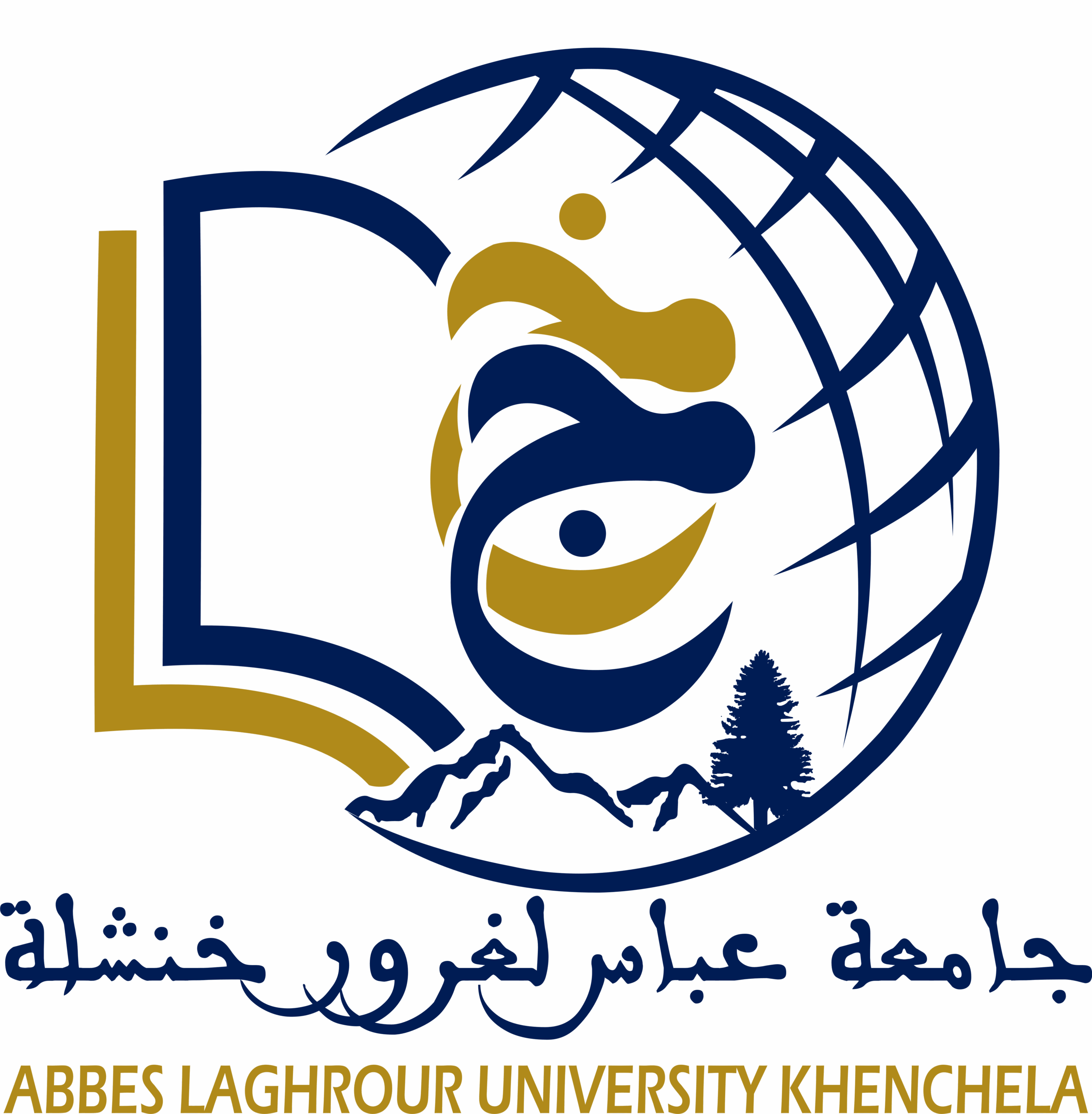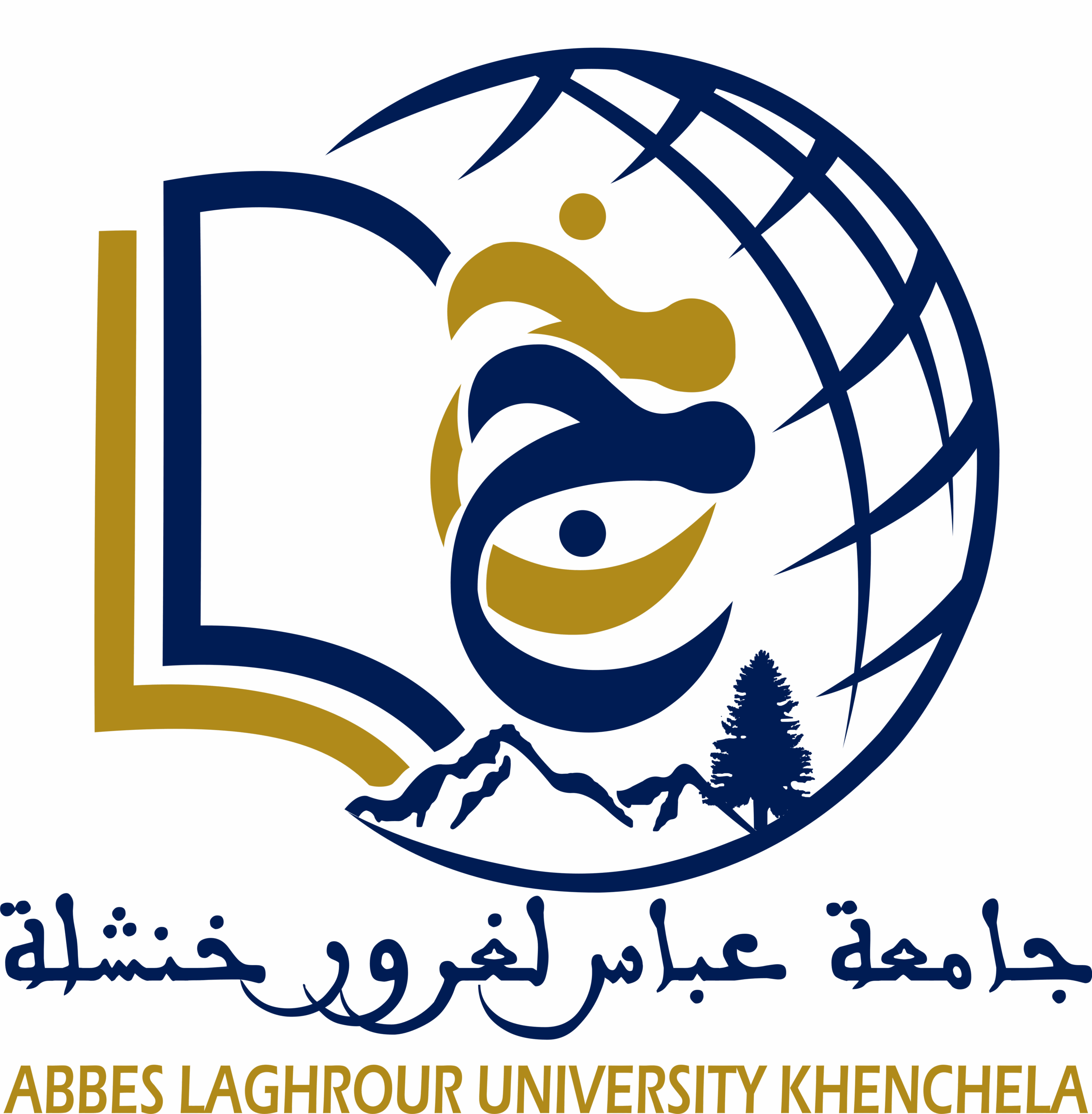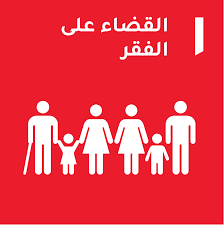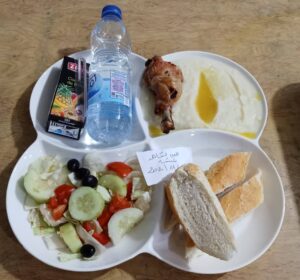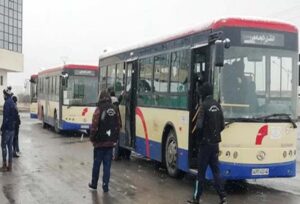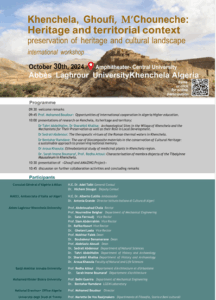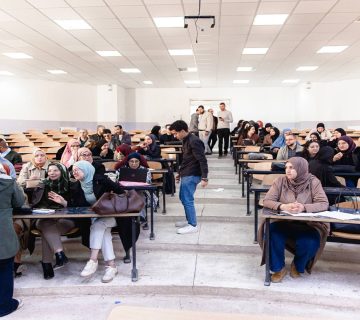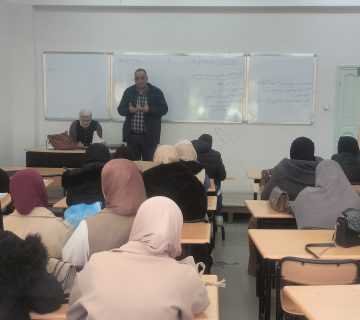Sdg1: No Poverty
Free university study
Our university’s policy is based on free education, which contributes to accepting students in the various specializations available at our university based on the department and baccalaureate grade obtained by the student. The financial capabilities of those wishing to study have no effect on their acceptance because our university adopts a series of free education for all.
University financial aid:
In the context of eliminating financial disparities in the academic aspect of our students, our university relies on a policy of free university education, in addition to providing financial aid to every student whose parents’ income does not exceed 08 times the guaranteed national minimum wage of 20,000 DZD per month. To obtain the university grant, the student submits an application on the platform designated for grant applications via the PROGRES system line) at the beginning of each academic year via the link:
https:progres.mesrs.dz/webonou
Each student registered in a higher education department benefits from a university studies grant during his/her academic career estimated at:
4050 DZD or 3600 DZD or 2700 DZD depending on the total annual income of the parents
• To be registered in a higher education institution.
• To not have a study delay equivalent to 04 semesters.
• The grant excludes any other financial allocation.
• The parents’ income does not exceed 08 times the guaranteed national minimum wage of 20,000 DZD per month.
• To be pursuing his/her studies regularly (i.e. not having an academic break or his/her total mark in the current year equals zero).
The policy is to enable all students to study in the same conditions.
The policy pursued by our university aims to enable all students to study in the same conditions regardless of the financial differences of their families, and this is through:
- Free education for all students without exception, including foreign students
• Financial aid for each student whose parents’ income does not exceed 08 times the national minimum guaranteed wage of 20,000 DZD per month.
• Providing free university transportation: Our university provides 51 buses for free university transportation
• Providing decent and free housing for students through various university residences
• Providing free food for students through various university restaurants, the number of which has reached 04 and distributed across various university residences.
For more information on various university services for students, you can view the following link: https://www.facebook.com/profile.php?id=100063713703332
Objectives:
Through these procedures, our university aims to graduate all students who demonstrate pedagogical success, including students who fall in the bottom 20% of the family income group, through the following objectives:
• Eliminate financial disparities among students that affect their academic level
• Achieve equal opportunities for students regardless of the financial disparities of their families
• Support all students to graduate and complete their studies regardless of their financial situation
• Encourage student competencies that demonstrate academic excellence to complete their postgraduate studies (PhD) regardless of their financial situation.
University transportation
Within the framework of providing university transportation, the number of university transportation buses reached fifty-one (51) buses that work to transport students from Al-Saada neighborhood to the university and from the university to Al-Saada neighborhood, and to transport female students from the residence to the university and from the university to the residence, and also from the university to the scientific laboratories and vice versa, as well as to transport students from some municipalities to the university and return them. They operate daily except Friday and Saturday from 7:30 in the morning to 17:10 in the evening, and are rented by the University Services Directorate of Khenchela State, which strives to contribute to serving students through the efforts made.
Different university residences in Khenchela: Below are the different Facebook links for university residences in Khenchela, which provide housing and food services for students.
- Khalidi Mubarak and Zainab Khenchela University Residence:
https://www.facebook.com/profile.php?id=100063841697786
- University residence 2000 beds Elhamma Khenchela:
https://www.facebook.com/ru2000douk40
- University residence Hakkar Zerfa Khenchela:
https://www.facebook.com/profile.php?id=100089901229569
- ElMujahidah Ashi University Residence:
https://www.facebook.com/profile.php?id=61558388567608
Our university policy is based on providing all types of services free of charge to all students: housing, transportation and food, regardless of their financial situation, whether Algerian students or students from outside the country. This is in order to give equal opportunities to students and not allow poverty to affect their academic path, without discrimination between Algerian students and students coming from developing countries.
No Poverty: Abbas Laghrour University Khenchela presents its progress in this goal through:
PRFU Research Projects
Social Development Research Results:
- Dr. Walid Bibi’s publication: “Effectiveness of Development Planning and Civil Society in Achieving Self-Reliant Local Development as an Alternative Model in Algeria for Establishing Local Governance Rules”
- Link: https://www.asjp.cerist.dz/en/article/26905
- Participation in PRFU research project: “Financing Mechanisms for Startups to Support Competitive Advantage and Achieve Sustainable Local Development”
Economic and Social Studies on Living Standards:
- The International Journal of Humanitarian Studies aims to establish credible outlets for publishing specialized scientific knowledge in humanities
- Enables researchers worldwide to publish research addressing real-life problems
- Establishes theoretical and practical frameworks for human knowledge in various fields
- Follows precise scientific standards and specifications
- Link to journal:
3. Research on Social Support Programs’ Effectiveness:
- National Symposium (June 2, 2022): “Community Solidarity as a Tributary to Strengthening Citizenship Culture During the Corona Pandemic”
- International Workshop: “Khenchela, Ghoufi, M’chouneche: Heritage and Territorial Context”
- Focus on preservation of heritage and cultural landscape
- “Khenchela, Ghoufi, M’chouneche: Heritage and Territorial Context – Preservation of Heritage and Cultural Landscape” The university’s efforts in poverty elimination focus on three main areas:
- – Research projects examining social development and local governance
- – Economic studies analyzing living standards and social conditions
- – Community engagement through symposiums and workshops focused on cultural preservation and social solidarity
These initiatives demonstrate the university’s commitment to understanding and addressing poverty through research, education, and community engagement while preserving local cultural heritage.
Professor Publications:
Articles in national journals on poverty alleviation mechanisms: including the article by professors: Zerman Karim, Latrech Sabrina, Djoudi Mohamed Ali. “The Phenomenon of Poverty in Algeria: Causes and Solutions” https://www.asjp.cerist.dz/en/article/181732.
Studies in international journals on economic policies: through the “Al-Asil Journal of Economic and Administrative Research” (Class J), an international scientific journal, peer-reviewed, published biannually by the Faculty of Economic Sciences, Commercial Sciences, and Management Sciences at the University of Abbas Laghrour Khencela since 2017, with the international numbering ISSN: 2571-9866, EISSN: 2661-7854, and legal deposit: March 2017. It aims to publish original scientific research and studies that have not been previously published in the fields of economic, commercial, administrative sciences, and all related sciences, in Arabic, French, and English. Believing in the importance of scientific research in developing societies, it aims to highlight the efforts of researchers by publishing their scientific production from within and outside the Algerian university and to raise the level of scientific research in various educational institutions, to develop it by introducing new methods and means used and enriching knowledge in all different fields, as well as keeping up with and following scientific economic events.
https://univ-khenchela.com/%D9%85%D8%AC%D9%84%D8%A9-%D8%A7%D9%84%D8%A3%D8%B5%D9%8A%D9%84-187.
Research papers on economic empowerment programs: The political empowerment of women in Arab parliaments was the focus of a national symposium with the participation of 26 national and Arab universities on 06/12/2023, held at the University of Martyr Abbas Laghrour in Khencela. The symposium was organized by the Faculty of Law and Political Science in collaboration with the Legal, Political, and Juridical Research Laboratory (Political Reform Team in the Maghreb Region in light of current regional and international changes), and the PRFU project teams on electoral systems and their impact on women’s political representation in elected councils, and the PRFU project on rights and freedoms in light of the constitutional amendment of 2020. Given the importance of the symposium and its international dimension reflected in Arab parliaments, the scientific committee received around 120 submissions, 92 of which were accepted, and 28 were rejected from 26 national universities and one university center, along with three submissions from two Arab universities, Sousse University in Tunisia and Sirte University in Libya. These submissions addressed all proposed axes, including:
- Examining the reality of women’s political empowerment in Arab parliaments before and after the adoption of preferential measures for them.
- Identifying the main obstacles preventing women’s political empowerment and ways to overcome them.
- Examining the practical importance of adopting preferential measures for women and their impact on their political empowerment.
- Studying the possibility of empowering women politically without the need for preferential measures.
Research Team Outputs:
Periodic reports on scholarship programs: Scholarship programs are among the most important pillars that universities rely on to support their students and motivate them towards academic excellence. These programs include a variety of scholarships targeting different student categories. The scholarship management issues periodic reports detailing the number of beneficiaries and their distribution by faculties and academic levels. These reports also analyze the extent to which scholarship programs achieve their goals and key performance indicators. They document the challenges faced in implementing these programs and propose solutions for their development.
Statistics on financial support provided to students: Financial support for students is one of the most important services offered by the university to ensure the continuity of the educational process and achieve the principle of equal opportunities. The university allocates an annual budget for financial support distributed according to specific criteria that consider the economic and social circumstances of students. Statistics indicate an increasing number of students benefiting from financial support programs annually, reflecting the university’s commitment to expanding the scope of beneficiaries. This data is analyzed periodically to evaluate the efficiency of resource distribution and ensure it reaches those in need.
Evaluative studies on social assistance programs: Social assistance programs are an integral part of the student support system at the university. The evaluative studies of these programs aim to measure their effectiveness in achieving their intended goals. These studies include surveys of the beneficiary students, an analysis of the relationship between the assistance provided and academic achievement, as well as an evaluation of the administrative procedures followed in providing assistance and identifying potential areas for improvement. The results of these studies help in developing policies and procedures related to social assistance programs and increasing their efficiency.
These information is published through:
- The university’s official website: https://univ-khenchela.com/#!
- The official Facebook page: https://www.facebook.com/?locale=fr_FR
- The YouTube channel: https://www.youtube.com/watch?reload=9&v=ZghffzdzpVI
- The page dedicated to Goal 1 on the university’s Sustainable Development website: https://univ-khenchela.com/explore/articles.php?article=1866
